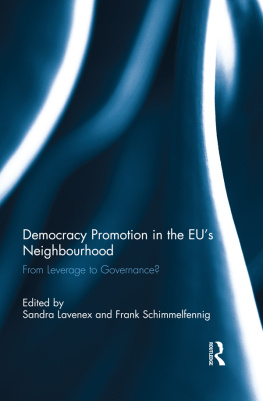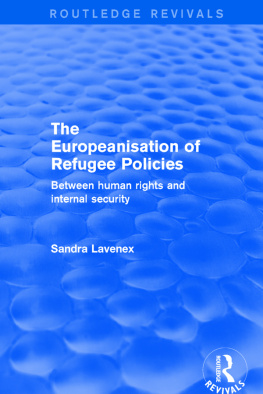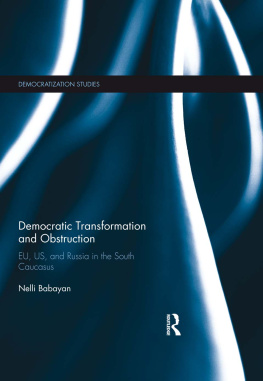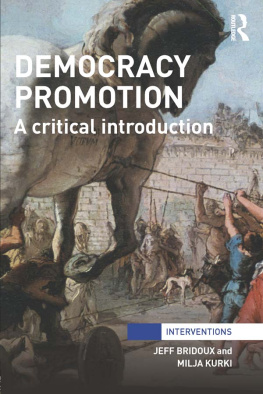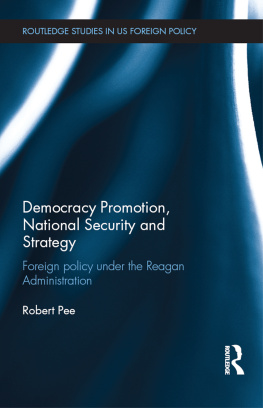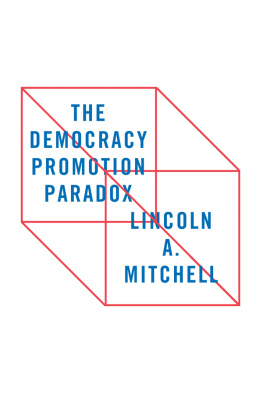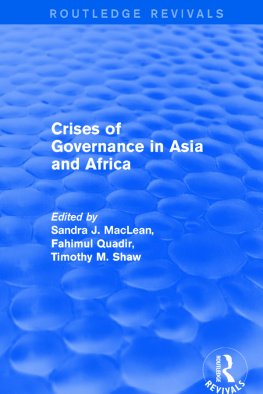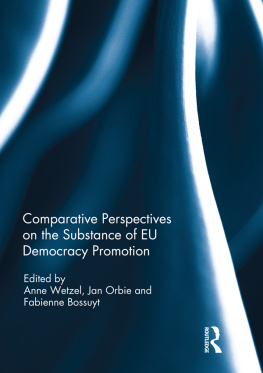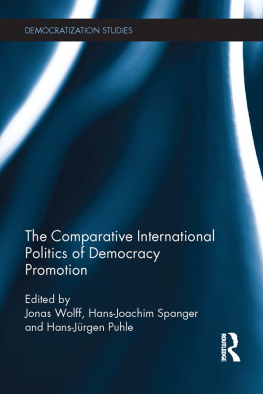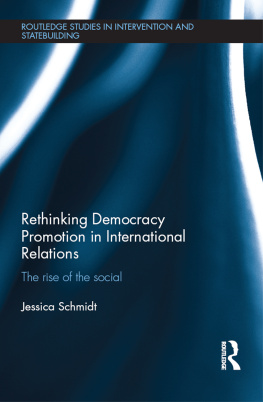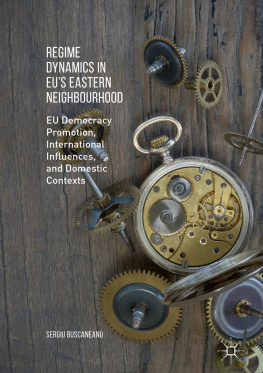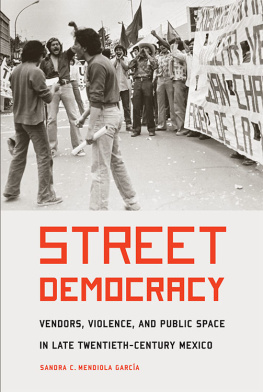Democracy Promotion in the EUs Neighbourhood
EU external democracy promotion has traditionally been based on linkage, i.e. bottom-up support for democratic forces in third countries, and leverage, i.e. the top-down inducement of political elites towards democratic reforms through political conditionality. The advent of the European Neighbourhood Policy and new forms of association have introduced a new, third model of democracy promotion which rests in functional cooperation between administrations. This volume comparatively defines and assesses these three models of external democracy promotion in the EUs relations with its eastern and southern neighbours. It argues that while linkage has hitherto failed to produce tangible outcomes, and the success of leverage has basically been tied to an EU membership perspective, the governance model of democracy promotion bears greater potential beyond the circle of candidate countries. This third approach, while not tackling the core institutions of the political system as such, but rather promoting transparency, accountability, and participation at the level of state administration, may turn out to remain the EUs most tangible form of democratic governance promotion in the future.
This book was originally published as a special issue of Democratization.
Sandra Lavenex is Professor of International Politics at the University of Lucerne, Switzerland and is also Visiting Professor at the College of Europe.
Frank Schimmelfennig is Professor of European Politics at ETH Zrich, Switzerland.
Democracy Promotion in the EUs Neighbourhood
From Leverage to Governance?
Edited by
Sandra Lavenex and Frank Schimmelfennig
First published 2013
by Routledge
2 Park Square, Milton Park, Abingdon, Oxon, OX14 4RN
Simultaneously published in the USA and Canada
by Routledge
711 Third Avenue, New York, NY 10017
Routledge is an imprint of the Taylor & Francis Group, an informa business
2013 Taylor & Francis
This book is a reproduction of Democratization, vol. 18, issue 4. The Publisher requests to those authors who may be citing this book to state, also, the bibliographical details of the special issue on which the book was based.
All rights reserved. No part of this book may be reprinted or reproduced or utilised in any form or by any electronic, mechanical, or other means, now known or hereafter invented, including photocopying and recording, or in any information storage or retrieval system, without permission in writing from the publishers.
Trademark notice: Product or corporate names may be trademarks or registered trademarks, and are used only for identification and explanation without intent to infringe.
British Library Cataloguing in Publication Data
A catalogue record for this book is available from the British Library
ISBN13: 978-0-415-52311-0
Publishers Note
The publisher would like to make readers aware that the chapters in this book may be referred to as articles as they are identical to the articles published in the special issue. The publisher accepts responsibility for any inconsistencies that may have arisen in the course of preparing this volume for print.
Sandra Lavenexa and Frank Schimmelfennigb
aInstitute of Political Science, University of Lucerne, Hirschmattstrasse 25, 6000 Luzern 7, Switzerland; bCentre for Comparative and International Studies, Eidgenssische Technische Hochschule (ETH) Zrich, European Politics, Haldeneggsteig 4, 8092 Zurich, Switzerland
EU external democracy promotion has traditionally been based on linkage, i.e. bottom-up support for democratic forces in third countries, and leverage, i.e. the top-down inducement of political elites towards democratic reforms through political conditionality. The advent of the European Neighbourhood Policy and new forms of association have introduced a new, third model of democracy promotion which rests in functional cooperation between administrations. This article comparatively defines and explicates these three models of external democracy promotion. It argues that while linkage has hitherto failed to produce tangible outcomes, and the success of leverage has basically been tied to an EU membership perspective, the governance model of democracy promotion bears greater potential beyond the circle of candidate countries. In contrast to the two traditional models, however, the governance approach does not tackle the core institutions of the political system as such, but promotes transparency, accountability, and participation at the level of state administration.
Introduction
During the past two decades, the European Union (EU) has developed into an agent of international democracy promotion in its neighbourhood. The EU had long conceived of itself as a community of democracies and recognized the need to strengthen its own democratic credentials. Some of its external policies most prominently, its Southern enlargement to Greece, Portugal, and Spain had also been regarded implicitly and informally as a contribution to democratization. However, most of its external relations above all trade agreements and development cooperation had been notable for their apolitical content and the principle of not interfering with the domestic systems of third countries. It was only in the early 1990s that external democracy promotion became an explicit, formal, and general aim of the EU. In the Treaty of Maastricht (1992), the EU declared the development and consolidation of democracy as a goal of development cooperation (Art. 130u) and its Common Foreign and Security Policy (Art. J.1), and the principle of democracy was introduced in all its external trade and aid agreements.
From its beginnings, EU democracy promotion has been a multifaceted policy. We distinguish three models, two that reflect main approaches to external democracy promotion and a third model that is more germane to the EU as a framework for regional integration.1 The first model is linkage. It consists of activities that tackle the societal preconditions for democracy and give support to the democratic opposition and other civil society actors in the target countries. The second model of democracy promotion is leverage. This approach induces democratic reforms via political conditionality. Finally, the EU also promotes democratic principles through policy-specific, functional cooperation with third countries. We refer to this third approach as the governance model of democracy promotion. Whereas the linkage approach has been a constant in EU external policies since the early support to democratic transitions in Latin America in the 1980s,2 the leverage model then became dominant in the 1990s after the end of the Cold War. The governance model started becoming more prominent in the early 2000s in the context of the European neighbourhood policy (ENP) which seeks to promote neighbouring countries approximation to the EUs system of rules below the threshold of membership.3
In the early 1990s, the political integration symbolized in the creation of the EU coincided with the transformation of many Eastern European countries and these countries gradual rapprochement with the EU. While the EU continued to give support to democratic transition in Central and Eastern European countries through economic aid and targeted action towards civil society, it also embraced a more explicit and direct approach to democracy promotion by making aid, market access, and deepened institutional relations from association to membership conditional on a third states progress in institutional democracy. In the relations with candidate countries, political conditionality or leverage came to epitomize the EUs democracy promotion efforts. Most notably, the Copenhagen Criteria agreed by the European Council in 1993 made the consolidation of liberal democracy the principal condition for starting accession negotiations. From the first round of Eastern enlargement negotiations, opening in 1998 and excluding Slovakia because of its democracy deficits, to the discussions about the membership prospects of Turkey and the Western Balkans, political conditions related to the state of democracy have been of central relevance. Whereas linkage continued to be the preferred approach to democracy promotion in Africa, Asia and Latin America, democracy, human rights and the rule of law became essential elements in almost all EU agreements with third countries as both an objective and a condition of the institutionalized relationship. In the case of violation, the EU introduced the (theoretical) possibility to suspend or terminate the agreement.4


